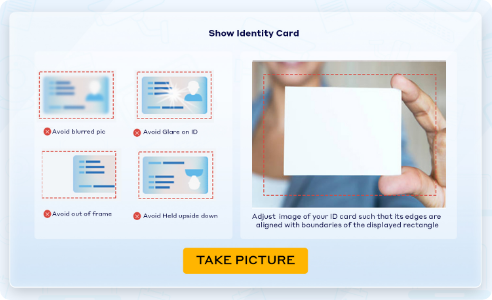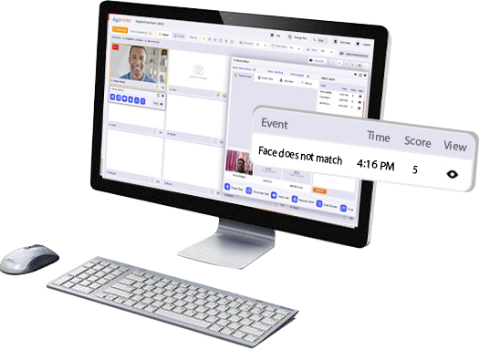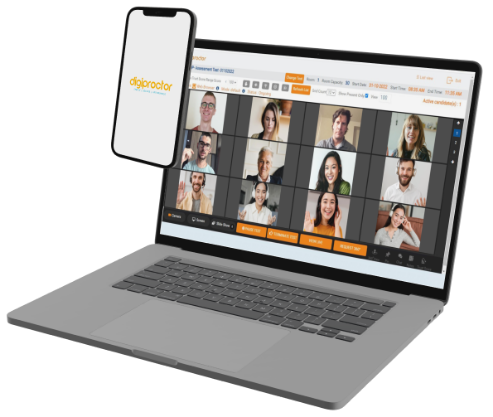The Shift
Towards Digital
Transformation in Education
As an academic year draws to a close, Controllers of Examinations (COEs), Heads of Departments (HODs), and Chief Examiners are preparing for another round of online assessments.
Similar to how businesses have adapted to hybrid work environments, “Exams from Home” and online learning have gained significant momentum. Globally, the e-learning market grew steadily from 2015 and is projected to reach USD 352.6 billion by 2025, with further growth expected to reach USD 842.6 billion by 2030 (Grand View Research). In India, the e- learning sector has expanded from USD 8.2 billion in 2024 to an anticipated USD 22.6 billion by 2033 (IMARC Group), driven by increasing internet penetration, smartphone usage, and demand for flexible learning. India currently has over 13 million online learners, a number projected to surpass 20 million by 2030. This surge has transformed assessments, with institutions increasingly adopting remote proctored exams and digital evaluations. The trend toward online education and exams is expected to continue, making flexible, accessible, and secure learning a cornerstone of global education by 2030.
DigiProctor Survey- The Growing Need for Digital Exams
A recent DigiProctor survey, Emerging Trends in Supplementary Secondary & Higher Education in India, indicates that the education sector is increasingly recognising the necessity to rethink traditional teaching and examination methods while fully embracing digital transformation.
The report categorizes the education sector into five key segments:
- Primary, Secondary & Higher Education
- Test Preparation
- Reskilling and Certification
- Language Learning
- Hobby Learning Courses
The rapid shift from traditional classroom instruction to online learning during the pandemic clearly indicates that hybrid learning models are no longer temporary but are here to stay.
Live Online Proctoring- A New Era of Assessments
Learning Management Systems (LMS) are now essential, with educational institutions globally adopting them to deliver synchronous learning experiences that keep faculty and students connected.
To maintain the credibility of online exams, live online proctoring has emerged as a critical component. It allows institutions to monitor exams in real time, prevent cheating, and verify student identity- ensuring that remote assessments are as secure as physical test centers.
The reskilling and online certification segment remains the fastest growing area within the online education market, with many online providers collaborating with corporations to offer micro credential programs, bridging workforce skill gaps.
Strategic Partnerships
For Cybersecurity Education
In collaboration with Ernst & Young, DigiProctor has partnered with Manav Rachna International Institute of Research and Studies (MRIIRS) to establish a Centre of Excellence in Cybersecurity.
This partnership delivers industry focused knowledge and practical workshops through Manav Rachna's Cybersecurity Skill Development programs. DigiProctor’s live online proctoring technology plays a pivotal role in transforming the assessment process at MRIIRS.
All certifications awarded by MRIIRS will be recognized by the university and powered by DigiProctor, enabling students to leverage these credits toward their academic progression.

AI and Live Online Proctoring
Ensuring Test Integrity
The Future Of
Online Examinations
The shift to digital examinations brings new challenges, such as impersonation and the use of unauthorized aids, which can compromise exam integrity.
High stakes exams like JEE and NEET have faced vulnerabilities, with examination data, especially question papers, being targeted by hackers and cheating syndicates. To counter these threats, live online proctoring combined with AI driven identity verification has become essential for maintaining fairness and credibility.
Key AI Powered Features:
- AI Driven Identity Verification to prevent impersonation before exams.
- Live online proctoring sessions, where proctors can monitor students in real time.
- Continuous behavioural tracking, ensuring test integrity throughout the assessment.
This integrated approach ensures that only legitimate students take the test and that they receive no outside assistance during exams.

AI Powered
Online ID Verification and Remote Proctoring
Emerging technologies, particularly Artificial Intelligence (AI), are increasingly being integrated into online exam proctoring solutions to validate the identity of test takers and deter the use of unauthorised aids during exams. The Examination Office mandates the use of Identity Verification and Proctoring technologies to uphold the integrity of high stakes assessments.
Identity verification is conducted before the examination to prevent impersonation, ensuring that only the legitimate student is taking the test. Online Proctoring plays a critical role in maintaining examination integrity by preventing students from receiving unauthorised assistance, either from other test takers or external sources.
As the landscape of education continues to evolve, AI driven solutions like DigiProctor are setting new standards for the integrity and security of online assessments, ensuring that the shift to digital learning and examinations is both seamless and trustworthy.



Examination Head concerns about Online Identity Verification
Read MoreDigiProctor
AI Assisted Live Online Proctoring Modes
DigiProctor offers multiple proctoring modes to suit different exam scenarios:
Online Exam Management with Auto Proctoring
AI Only Proctoring Mode
Ideal for large scale examinations, where the number of candidates far exceeds the available human proctors.
- AI manages the entire proctoring process without human intervention.
- Camera, audio feeds, and screen activity are analysed by an advanced AI engine.
- Suspicious behaviour is automatically flagged, recorded, and can trigger actions such as pausing or terminating the exam or adjusting the candidate’s Trust Score.
AI Assisted Human Proctoring Mode
Combines the strength of AI monitoring with human oversight, allowing proctors to focus on the most critical alerts while AI scans for subtler violations.
Human Only Proctoring Mode
For sensitive exams where direct human supervision is preferred. Proctors can chat, pause, or terminate exams in real time.
Trust Scores:
Maintaining Exam Fairness
DigiProctor uses Trust Scores to measure the credibility of a candidate’s performance and conduct during the exam.
- Each candidate begins with a Trust Score of 100.
- The score decreases with every instance of non compliant behaviour, detected by AI or human proctors.
- If the score drops below a set threshold, disciplinary actions, including test termination, can be enforced.
This feature strengthens the live online proctoring process, ensuring exams remain fair and transparent.


Preventing Cheating
with DigiProctor
With students becoming more tech savvy, traditional proctoring solutions are no longer enough. Modern cheating tools can easily bypass conventional monitoring methods.
DigiProctor’s live online proctoring technology integrates advanced AI to detect even subtle forms of cheating, combining real time human supervision with powerful AI driven analysis.
This ensures a multi- layered defence against academic dishonesty and guarantees that examinations uphold the highest standards of integrity.
Why DigiProctor Stands Apart?
Most competitors offer only surface level proctoring, which can be easily fooled. DigiProctor’s advanced live online proctoring system, backed by AI and expert human proctors, delivers unmatched security, protecting the credibility of online assessments.
